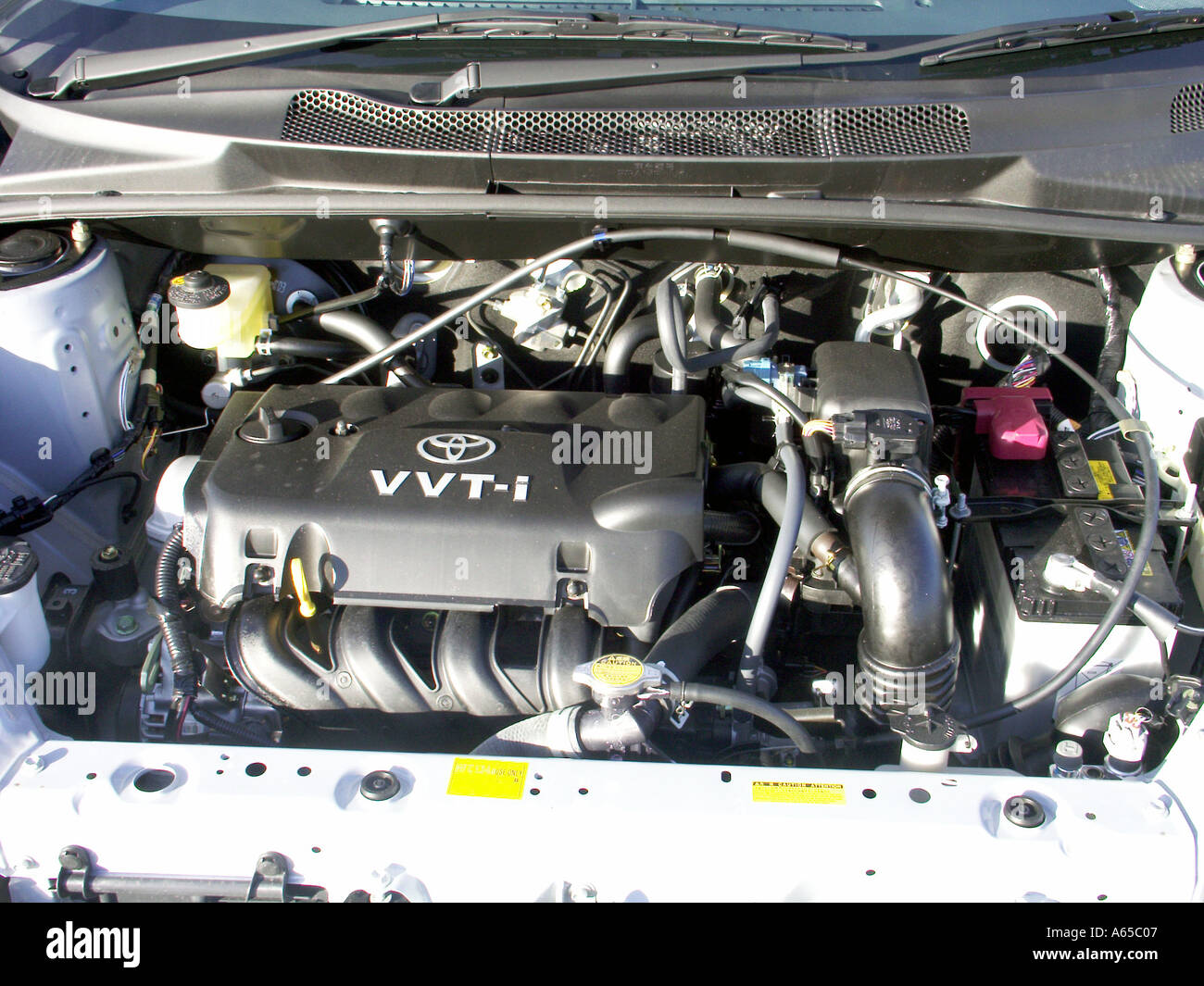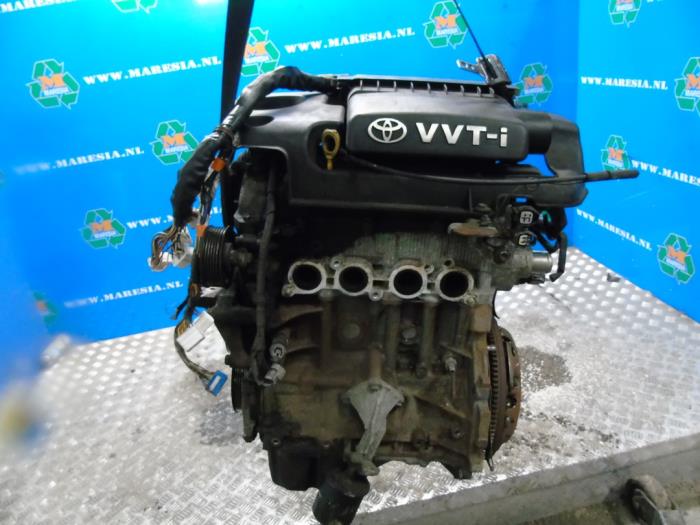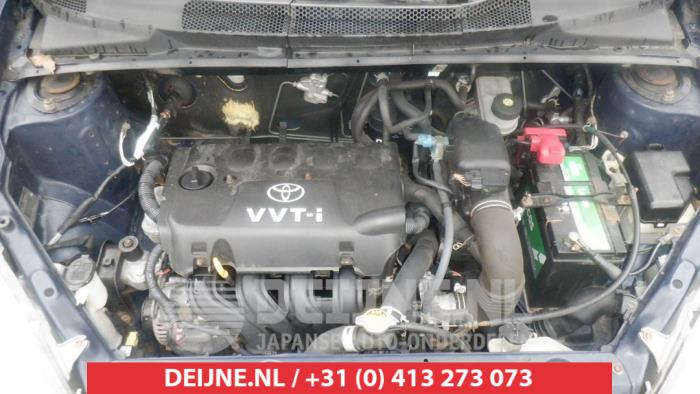Is the Toyota Yaris 1.3 VVTi Engine as Reliable as They Say? A Deep Dive
The Toyota Yaris has a reputation. Whispers of reliability and fuel efficiency follow it like a shadow. But behind the compact, unassuming exterior, lies an engine that’s often lauded as a champion of longevity: the 1.3 VVTi. But is this praise justified? Is the 1.3 VVTi engine truly as reliable as the internet and car enthusiasts claim? This article dives deep into the heart of the matter, analyzing the engine’s strengths, weaknesses, and overall performance to give you a comprehensive understanding.
Understanding the Toyota 1.3 VVTi Engine
Before we can assess reliability, let’s briefly understand the engine itself. The 1.3 VVTi (Variable Valve Timing with intelligence) engine, found in various generations of the Toyota Yaris, is a naturally aspirated (non-turbocharged) inline-four cylinder engine. Key features include:
- Variable Valve Timing (VVTi): This technology optimizes valve timing for improved fuel efficiency and performance across a wider range of engine speeds.
- Chain Driven Camshaft: Unlike some engines that use a belt, the Yaris 1.3 VVTi utilizes a durable timing chain, reducing the need for costly and frequent replacements.
- Compact Design: The engine’s size contributes to the Yaris’s overall fuel efficiency and maneuverability.
The Strengths of the Yaris 1.3 VVTi Engine: Why is it Considered Reliable?
The 1.3 VVTi engine’s reputation for reliability stems from several key factors:
- Simple Design: The engine’s relatively straightforward design, lacking complex turbochargers or direct injection systems, minimizes the number of potential failure points. Fewer components generally translate to increased durability.
- Toyota’s Engineering: Toyota is renowned for its meticulous engineering and quality control. This translates to robust components and rigorous testing, contributing to the engine’s longevity.
- Proven Technology: VVTi technology, while not groundbreaking, is well-established and has been refined over many years. This maturity in design translates to fewer unforeseen issues.
- Durable Timing Chain: As mentioned earlier, the use of a timing chain, rather than a belt, significantly reduces maintenance costs and the risk of catastrophic engine failure due to belt breakage.
- Fuel Efficiency: While not directly related to reliability, the engine’s excellent fuel economy often leads to less strain on components (e.g., the fuel pump), which can indirectly contribute to its lifespan.
Potential Weaknesses and Common Issues
While the 1.3 VVTi is generally reliable, no engine is perfect. Here are some potential issues to be aware of:
- Oil Consumption: Some owners report increased oil consumption as the engine ages, particularly in higher mileage examples. Regular oil level checks are crucial.
- Water Pump Failure: While less common than other issues, water pump failures can occur, leading to overheating if not addressed promptly.
- Oxygen Sensor Issues: Oxygen sensors can degrade over time, impacting fuel efficiency and emissions. This is a common issue in many vehicles and not unique to the Yaris.
- Spark Plug Issues: Spark plug replacement is a routine maintenance item, but neglecting it can lead to misfires and reduced performance.
- Carbon Buildup: While less prone to carbon buildup compared to direct injection engines, it can still occur over time, impacting performance. Regular maintenance can help mitigate this.
Maintenance and Longevity: How to Maximize Your Engine’s Lifespan
Proper maintenance is key to extending the life of any engine, including the 1.3 VVTi:
- Regular Oil Changes: Adhere to the manufacturer’s recommended oil change intervals using the correct oil type and viscosity.
- Coolant System Maintenance: Flush and replace the coolant at the recommended intervals to prevent corrosion and ensure optimal cooling.
- Spark Plug Replacement: Replace spark plugs according to the manufacturer’s schedule.
- Air Filter Replacement: Replace the air filter regularly to ensure proper engine breathing.
- Timing Chain Inspection: While the timing chain is designed to last, it’s wise to have it inspected during major services, especially at higher mileages.
- Fuel System Cleaning: Consider using a fuel system cleaner periodically to prevent carbon buildup.
Real-World Reliability: What Owners Say
The general consensus among Yaris 1.3 VVTi owners is overwhelmingly positive. Many owners report:
- High mileage without major issues.
- Low running costs due to fuel efficiency and infrequent repairs.
- Overall satisfaction with the engine’s performance and dependability.
However, it’s important to remember that individual experiences can vary. Factors like driving habits, maintenance history, and environmental conditions can all influence an engine’s lifespan.
Conclusion: Is the Toyota Yaris 1.3 VVTi Engine Reliable?
In conclusion, the Toyota Yaris 1.3 VVTi engine earns its reputation for reliability. Its simple design, Toyota’s engineering prowess, and the use of a durable timing chain contribute to a robust and long-lasting engine. While potential issues like oil consumption and water pump failure can occur, they are generally manageable with proper maintenance. If you’re looking for a compact car known for its dependability and fuel efficiency, the Toyota Yaris with the 1.3 VVTi engine is a strong contender. Its track record speaks for itself, making it a solid choice for both new and used car buyers.
Frequently Asked Questions (FAQs)
1. How long does a Toyota Yaris 1.3 VVTi engine typically last?
With proper maintenance, the 1.3 VVTi engine can easily last for 200,000 miles or more. Many owners report achieving even higher mileages, sometimes exceeding 300,000 miles.
2. What type of oil should I use in my Toyota Yaris 1.3 VVTi engine?
Consult your owner’s manual for the specific oil type and viscosity recommended for your Yaris. Generally, Toyota recommends a high-quality synthetic oil.
3. Is the Toyota Yaris 1.3 VVTi engine expensive to repair?
Compared to engines with complex technologies, the 1.3 VVTi is relatively inexpensive to repair. Parts are generally readily available and reasonably priced. Labor costs may vary depending on your location.
4. Does the 1.3 VVTi engine have a timing belt or a timing chain?
The 1.3 VVTi engine uses a timing chain, which is designed to last the life of the engine and doesn’t require scheduled replacement like a timing belt.
5. What are the signs of a failing water pump?
Signs of a failing water pump include coolant leaks, overheating, unusual noises from the engine, and a fluctuating temperature gauge. If you notice any of these symptoms, it’s important to have your vehicle inspected by a qualified mechanic.




